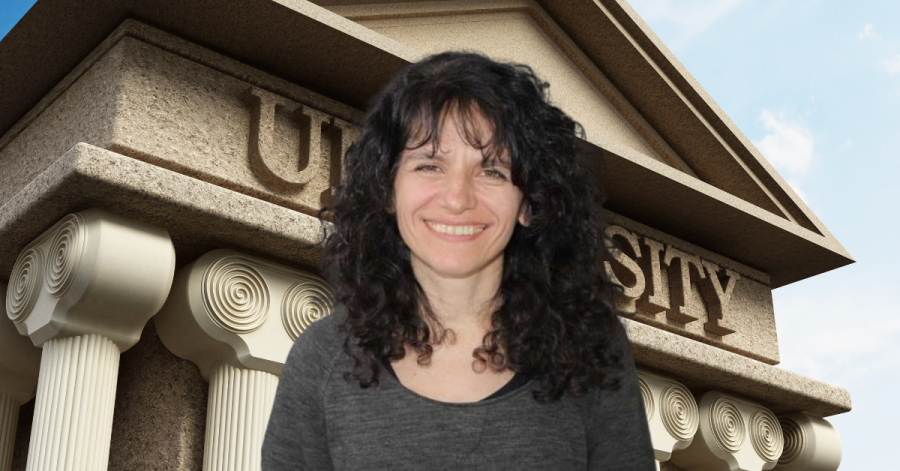Only have 1 minute? Check out these 3 takeaways:
- Uni.Fund, a venture capital entity, recently marked the initial close of its second fund at a notable €50 million, with a specific aim to bolster university spinouts and startups across Europe.
- In an interview with The Recursive, Katerina Pramatari, a founding partner at Uni.Fund, revealed that the fund plans to execute between 20 and 25 seed-stage deals, with the initial investment amounts ranging from €200K to €1.5M.
- Pramatari offered advice for university spinouts and startups seeking funding and support, emphasizing the importance of taking baby steps, testing the market, and setting up the team.
In the rapidly evolving startup landscape of the Central and Eastern Europe (CEE) region, the role of university research is becoming increasingly crucial. Universities are not just centers of learning; they are also hubs of innovation, fostering an entrepreneurial mindset among students and researchers alike. However, the potential of these institutions remains largely untapped, primarily due to a lack of adequate funding.
An increase in funding would not only support academic research but also enable universities to provide practical business experience to students through startup programs. These initiatives are crucial in nurturing the next generation of entrepreneurs in the CEE region. Additionally, scouting from universities is another key aspect of this process, as it helps identify and nurture promising talent and innovative ideas at their inception.
The importance of university spinouts is underscored by the fact that global fundraising for these entities has doubled in the last decade, reaching more than $158 billion across 8,042 investments, according to a report by Global University Venturing. This explosive growth in capital has been particularly beneficial for countries like Germany, Switzerland, and Japan, while the US continues to dominate the sector.
Recognizing the significance of this, there are organizations that are stepping up to bridge this gap in the CEE as well. One such organization is Uni.Fund, a venture capital fund that aims to leverage the untapped potential within Greek universities, R&D, and the tech space. Uni.Fund has recently announced a €50 million first close of its second fund, specifically aimed at backing university spinouts and startups across Europe. This fund, which is targeting a final close of €60 million by the end of the year, marks a significant expansion of Uni.Fund’s activities, as its first fund only backed companies in the Greek ecosystem.
The Recursive had the chance to talk to Katerina Pramatari, a founding partner at Uni.Fund, about this recent development and learn more about the long-term goals of the fund.
What inspired the creation of Uni.Fund’s second fund, and how does it differ from your first fund in terms of strategy and focus?
Right from the beginning, the vision of the Uni.Fund team has been to ignite entrepreneurship and leverage the hidden potential that exists in the Universities, research and technology space. This meant focusing on people and team development, implementation of successful go-to-market strategies and helping build the foundations of the entrepreneurial ecosystem. Having served that vision with our first fund in Greece, we realized that this is a universal need across Europe and it is important to continue serving our purpose in order to achieve long-term results. Therefore, there was not any dilemma for our team to continue together in the second fund with the same strategy and geographically expanding our activity to cover other areas in Europe as well.
Raising funds in the current macroeconomic climate is no small feat. Can you share some insights into how you managed to secure the €50M first close of your second fund amidst these challenging times?
I will agree with you that fundraising amidst these challenging times has not been an easy task. The fact we could demonstrate significant business results with our existing portfolio of companies has really helped us build trust with private investors. For example, all the 23 companies we have invested in with UF1 are still in operation, with a total revenue in excess of 50 million euros in 2022, while when we started they were below 4 million. The majority of them are scaling their operations on a global scale and raising funds to grow and not to survive. This fact, combined with our focus and effort on building the foundations of the entrepreneurial ecosystem around the Universities and research space, has also helped us get the support of major institutional investors, such as the European Investment Fund and the Hellenic Development Bank of Investments.
Can you share more about the decision to expand the fund’s focus beyond the Greek ecosystem to include university spinouts and startups across Europe?
While we started in Greece, we could see early on that the need to successfully bring research results to the market is big across Europe and the way to do so is the same, regardless of the country of origin of the researchers-founders. Besides, because of the European research grants (e.g. Horizon programme), this space is quite universal across Europe. The Greek ecosystem, because it’s quite condensed, has helped us figure out and demonstrate what needs to happen on a larger scale.
How do you plan to identify and select the 20 to 25 seed-stage deals that the fund is targeting?
The new fund will select 20 to 25 companies, mainly at seed stage. We understand that in order for good entrepreneurial and research teams to reach that stage, a lot of work has to be done in advance, for a team to get together, to identify the market need and define the product, to perform business validation, etc. We plan to work very closely with technology transfer offices, incubators, acceleration programs, etc., especially the ones working closely with Universities and research institutions in different countries, as we strongly believe that this space relies on synergies and the setup of a whole ecosystem, where different stakeholders work together in collaboration.
The fund is set to invest in a variety of sectors, including energy, AI, IoT, healthtech, foodtech, and fintech. Can you elaborate on why these sectors were chosen and what potential you see in them?
While the fund is sector agnostic, there are some sectors, as the ones you mention above, which are either in the rise or are areas that the Uni.Fund team has a good understanding of and is well-connected or both. We also see synergies between the existing portfolio and some collaborations that have already been established in these sectors.
From your perspective, what are the biggest challenges founders of spinout companies face, and how does Uni.Fund support them in overcoming these hurdles?
The founders of spinout companies usually have exceptional know-how in relation to the technology and the product but lack business understanding and entrepreneurial experience. Unfortunately, it is difficult for all of us to understand what we don’t understand and this is usually the biggest challenge. Our team goes with the eyes open and tries right from the start to set up the right context, based on trust and collaboration, in order to help the founding team make the right decisions. We also understand that this approach requires more time and patience than is usually the case in the VC environment, which is why we have a mixed strategy investing both in research spinout companies and in strong entrepreneurial teams.
With over 50% of the fund reserved for follow-on rounds, what is your strategy for supporting startups as they grow and evolve?
As with Uni.Fund I, once we invest in a company we become partners and we work very closely with the management team in supporting the company’s growth. We participate in several follow-on rounds with the objective not to help the company survive but grow in a clever, sustainable and scalable way. In most of the cases, it is through workshops and close collaboration with the team that such a growth plan is developed.
You mentioned that backing university spinouts can be risky due to factors like longer time to market, regulatory barriers, and capital intensity. How does Uni.Fund plan to manage these risks?
As already mentioned, in order to mitigate this risk we follow a mixed strategy, where we invest both in research spinouts and strong entrepreneurial teams. This builds a mixed portfolio and research spinouts gain a lot by interacting with the rest of the founders. Moreover, we put a lot of emphasis right from the start on generating sales and identifying the right business model that can make a company profitable.
How do you see this new fund contributing to the growth and development of the European startup ecosystem, particularly in the university and research sector?
We believe that there is a lot of hidden potential in the European startup ecosystem, especially in the university and research sector. We envisage that our effort as Uni.Fund will also be followed by others and we’ll join forces together in changing the landscape. We need to establish an entrepreneurial ecosystem across Europe that enables the development of strong IP together with the people that have the right skills and mindset to drive successful commercialization strategies and turn all this into business results with great economic and social impact for all.
What kind of impact do you hope to achieve with this fund in the long term, and how will you measure success?
We believe that the existence of a VC fund that is prepared to serve this space and help the companies grow into big global successes is very important and can act as a driving force. Moverover, the way a fund works with its portfolio companies to achieve growth can set the ground for entrepreneurial development and create the examples for others to follow. As a VC fund we obviously measure success in terms of returning the money back to our investors in multiples. However, we anticipate and hope that these will just be the quantifiable results and that we’ll have achieved a lot more in qualitative terms by contributing to the development of the entrepreneurial ecosystem in parallel.
Finally, can you share any advice for university spinouts and startups that are seeking funding and support? What steps can they take to increase their chances of success?
We all learnt to run by first taking baby steps and then walking. This is what we have to do in this space as well. Take baby steps in testing the market and setting up the team before we can walk to implement successful go-to-market strategies and then run fast in the global market territory. If we try to do this alone it may take too long or may never happen. By participating in competitions, startup acceleration programs, incubators, pitching events, networking etc. a team is exposed, learns, validates concepts with the market and moves forward. This activity requires a whole ecosystem to enable and support it. Let’s participate, unite forces and make it happen together in Europe.








